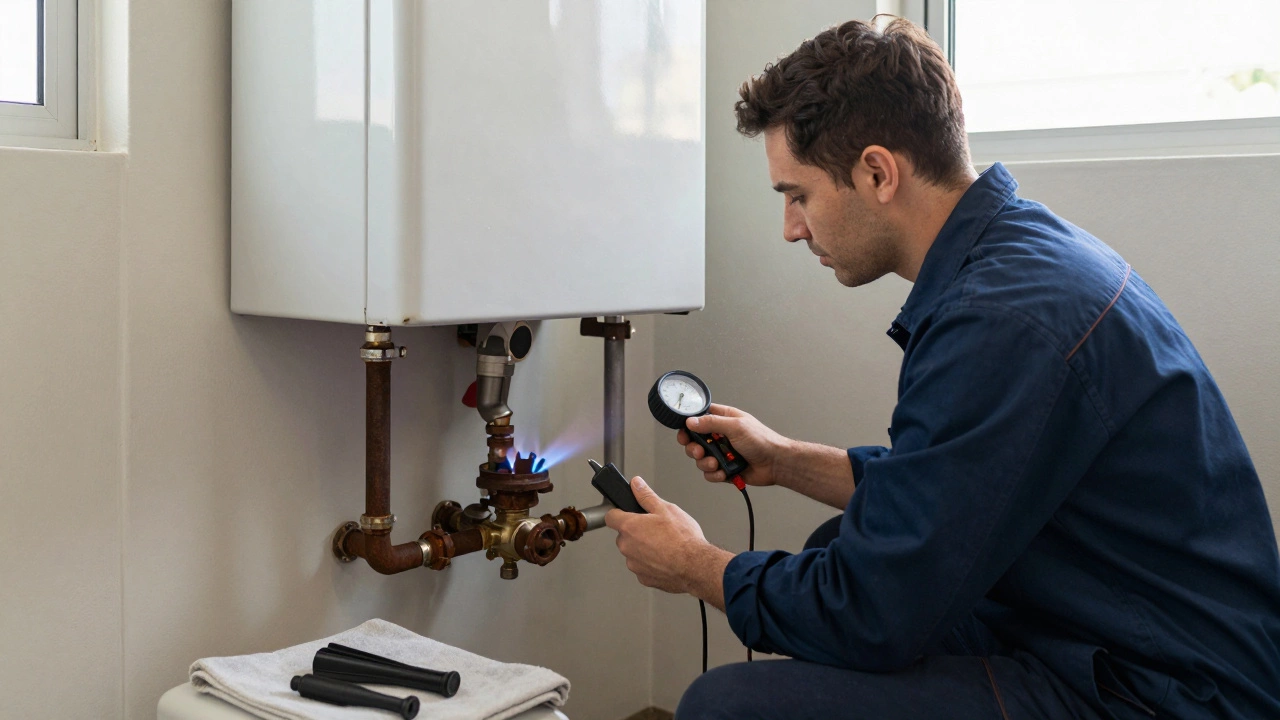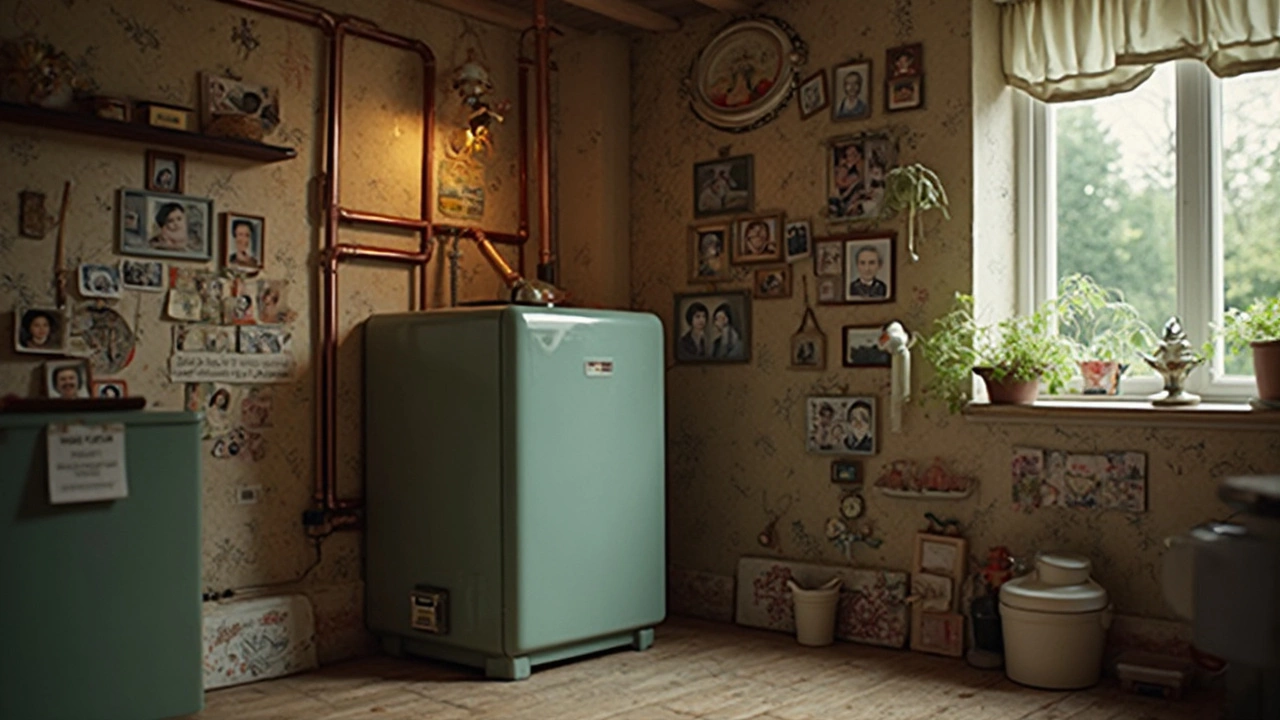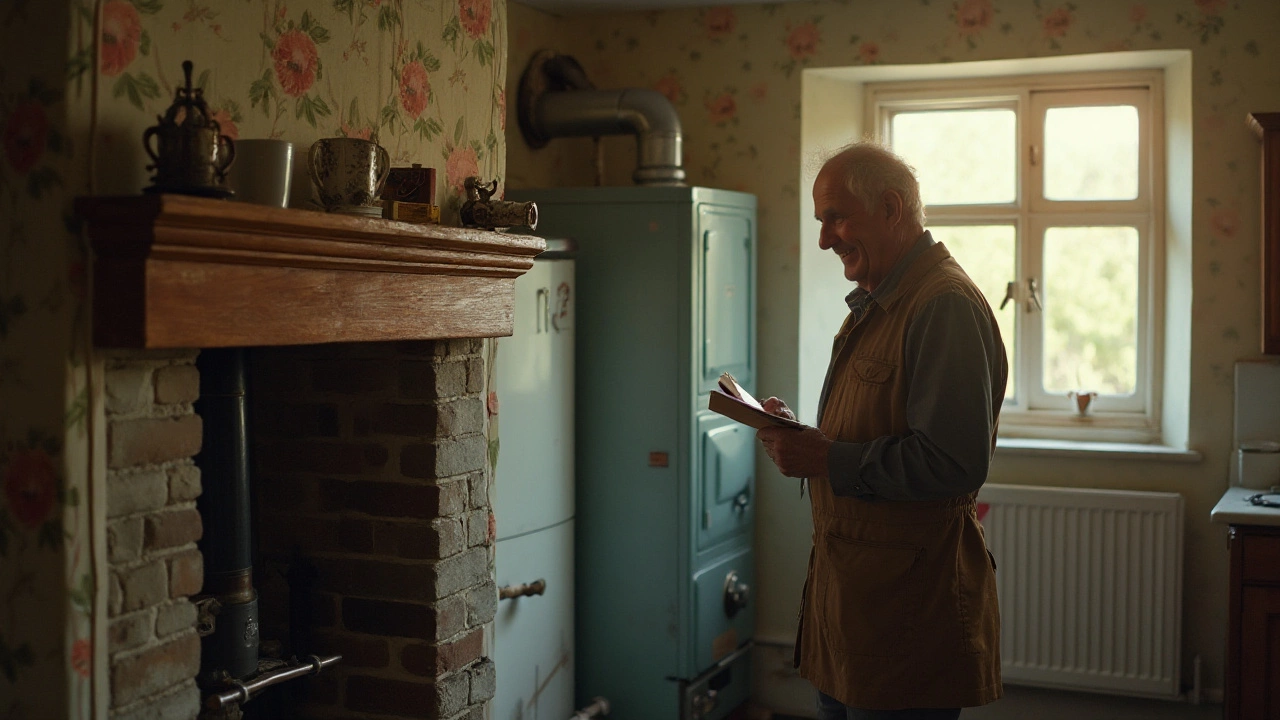Boiler Maintenance: Easy Steps to Keep Your Home Warm
If your boiler starts acting up, the first thing to check is whether you’ve kept up with regular maintenance. A well‑maintained boiler runs hotter, uses less energy and lasts longer. The good news? Most of the routine checks are simple, cheap, and you can do them yourself before calling a pro.
Why Regular Boiler Maintenance Matters
Every winter you rely on your boiler to heat the house and supply hot water. When dust, limescale or worn parts build up, the system works harder, the bill goes up, and the risk of a breakdown rises. A yearly service catches corrosion, leaks and faulty components before they turn into costly repairs. Plus, many manufacturers require a service record to keep the warranty valid.
Simple DIY Checks and When to Call a Pro
1. Visual inspection. Look at the boiler’s outer surface. Any signs of rust, damp patches or loose fittings? If you see them, tighten bolts and wipe away moisture, but schedule a professional check for anything serious.
2. Pressure level. Your boiler’s pressure gauge should read between 1 and 1.5 bar when the system is cold. Low pressure can cause the boiler to shut off. Top it up using the filling loop – just follow the small valve instructions on the boiler’s label.
3. Bleed radiators. Cold spots in a radiator mean trapped air. Use a radiator key to open the valve just enough for a hiss of air, then close it once water starts flowing. This improves heat distribution and reduces boiler strain.
4. Check the condensate pipe. In condensing boilers, the pipe drains acidic water away. Make sure it’s not blocked or frozen. A simple flush with warm water can keep it clear.
5. Listen for strange noises. Gurgling, banging or whistling sounds often point to air, scale or a failing pump. If the noise persists after the above checks, it’s time to call a qualified technician.
Even with these quick checks, a professional service once a year is still essential. A qualified engineer will clean the heat exchanger, test safety controls, calibrate the thermostat and ensure everything meets gas safety regulations.
Living in Glastonbury, you have local experts who know the area’s water hardness and typical heating demands. Booking a yearly service with a trusted company saves you time, money and the hassle of being left in the cold.
Bottom line: spend a few minutes each month on these easy steps, schedule an annual professional service, and enjoy reliable heat all winter long. Your boiler will thank you, and so will your energy bill.

What's Included in a Boiler Service? Full Breakdown for Australian Homes
A boiler service includes safety checks, gas pressure tests, cleaning the burner and heat exchanger, and inspecting safety devices. Annual servicing keeps your boiler efficient, safe, and under warranty.

Can Your Boiler Really Last 50 Years? Essential Insights & Lifespan Facts
Curious if a boiler can really last half a century? Discover expert insights, surprising real-life cases, and practical tips for extending your boiler's life.

Can You Service a Boiler Yourself? Key Facts You Need to Know
Wondering if you can service a boiler yourself? This article breaks down what you can and can't do when it comes to maintaining your home boiler. Get the real facts about risks, laws, and the tools you actually need. Learn which simple checks are safe to handle on your own and when you should always call in a pro. It's all about keeping your heating running smoothly and safely.

Is Your Boiler in Trouble? Key Signs and When to Act
Boilers are crucial household appliances that ensure comfort during chilly months. Understanding when to be concerned about your boiler can help prevent costly repairs and maintain the efficiency of your heating system. This article discusses frequent indicators of boiler trouble, how to identify what needs urgent attention, and practical advice for routine check-ups. Discover tips to prolong the lifespan of your boiler by effectively addressing warning signs before they escalate.

Should You Repair or Replace Your Boiler? Tips and Insights
Deciding whether to repair or replace a boiler can be daunting. Factors such as age, efficiency, and the cost of current repairs need consideration. Regular maintenance can extend the life of your boiler, but there are times when replacement becomes the more economical and safer choice. This article will guide you through the critical aspects to consider, helping you make an informed decision.

Maximizing Your Boiler's Lifespan: Key Insights and Tips
Boilers, essential for warming homes, have varied lifespans depending on several factors. This article delves into how long you can expect a boiler to last, influences on longevity, signs of wear, and tips to extend its life. Understanding these aspects can lead to better maintenance and cost savings. Knowing when to service or replace can ensure uninterrupted comfort during the colder months.

Maximize Your Boiler's Lifespan: Key Tips for Longevity
Boilers are essential for home heating, but like all appliances, they have a limited lifespan. This article explores factors affecting boiler longevity, typical lifespan expectations, and highlights ways to extend your boiler's life through regular maintenance. Learn about signs that indicate it's time to consider a replacement and valuable tips to maintain efficiency. Get informed to ensure your heating system serves you reliably for years.